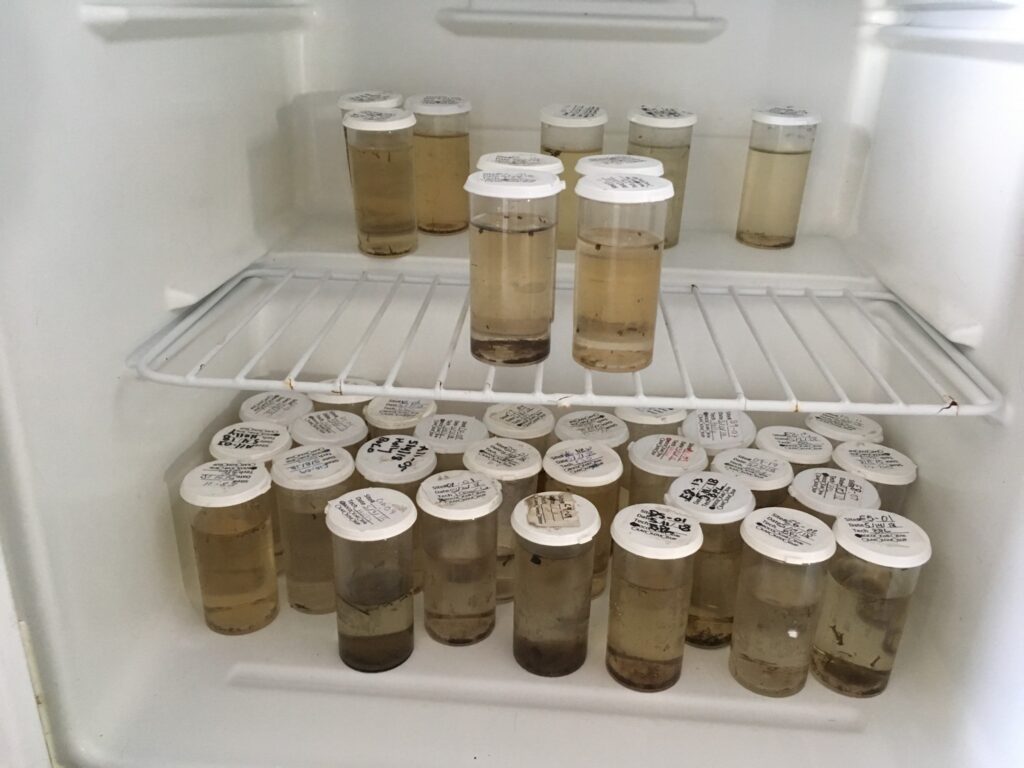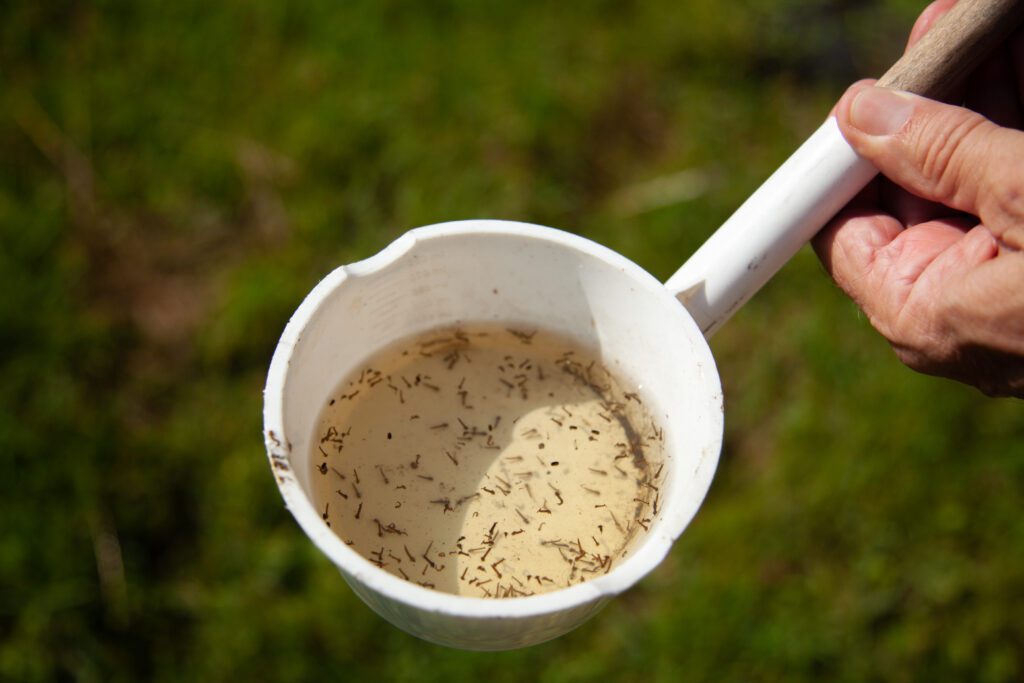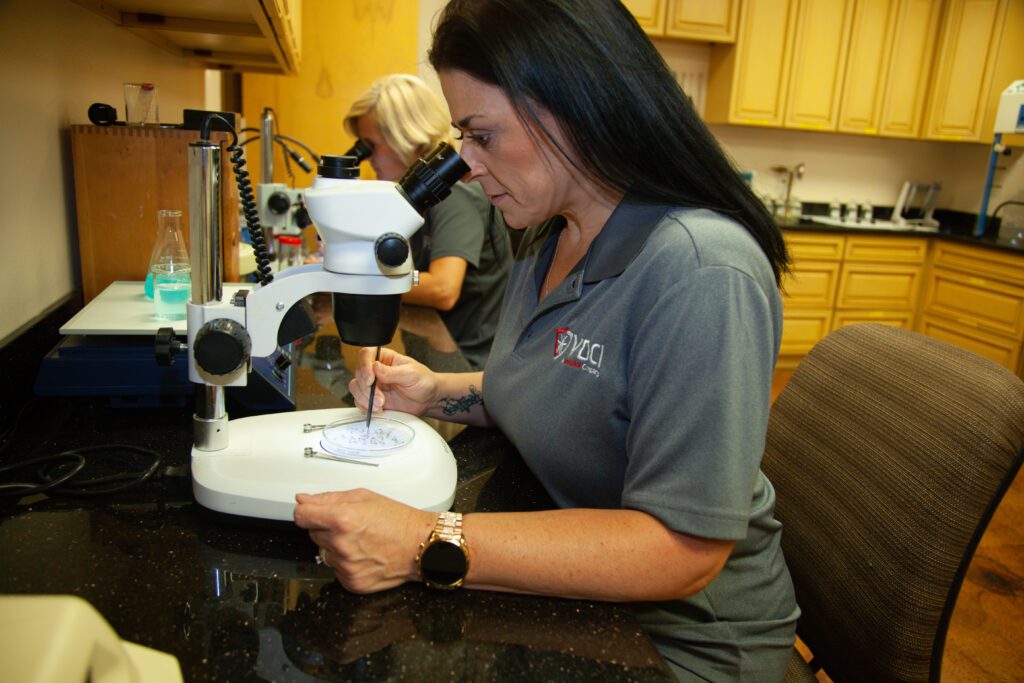How larval surveillance and lab analysis help support mosquito management programs
Mosquitoes are not only a nuisance, but they can transmit dangerous diseases that have a significant impact on human health. That’s why monitoring and controlling their populations is crucial. One of the most effective ways to do this is through an Integrated Mosquito Management (IMM) program.
There are four pillars of an IMM program, one being surveillance of both larvae and adult mosquitoes. Through larval surveillance, experts can identify and eliminate potential problem areas before the larvae have a chance to become adults. This process also involves collecting mosquito larvae from various breeding sites and testing larvae for insecticide resistance. With the data collected, experts can implement more effective control measures. Keep reading as we explore the importance of mosquito surveillance and how it can help protect public health.

How Larval Surveillance and Lab Testing Works
Larval surveillance is the process of monitoring the growth and development of immature insects, particularly mosquitoes, to gain a better understanding of the local population dynamics and if they are resistant to commonly used larvicides. Let’s break down how the larval surveillance process works:
- Mosquitoes require standing water to breed. With this in mind, experts search for common larvae sites throughout a community, like ditches, tires, marshes, bird baths, and more. Our entomologists identify mosquito larvae in water and collect them via a dip cup or a tubular suction devices for examination.
- We then bring larvae back to the lab, where they undergo efficacy testing. Our entomologists conduct insecticide resistance testing to ensure the larvae aren’t resistant to common larvicides.
- Some larvae are set aside in our “mosquito room,” a dedicated space used to house larvae and adults for further testing, and are kept warm to mimic the ideal habitat for mosquitoes.
- After placing the larvae in the room, our entomologists wait for them to develop into adults for additional insecticide resistance testing. If resistance is identified, experts can modify their control strategies to help ensure the most effective intervention strategies are used.

Why Larval Surveillance
Larval surveillance is vital to every IMM program. This critical strategy helps not only combat insecticide resistance, but it helps us identify problem areas with abundant breeding sites and implement solutions like source reduction or habitat modification. By identifying mosquito habitats and conducting efficacy testing, our experts can leverage this data and their expertise to build more effective IMM programs.
Mosquito surveillance allows us to gain a better understanding of larval habitats and the breeding behaviors of adult mosquitoes. Through our field analysis and testing, we can take a proactive approach to mosquito management by reducing the amount of larvae that make it to adulthood and reduce the number of vectors capable of spreading pathogesn. In addition, by testing mosquitoes for insecticide resistance as larvae and adults, we can ensure we are conducting applications using effective EPA-registered larvicides that provide lasting control solutions.

Protecting Your Citizens Together
At VDCI, we know that mosquito surveillance is one of the most important aspects of an effective Integrated Mosquito Management (IMM) plan. Our entomologists gather data that allows public health officials to identify areas at risk, track local mosquito populations, and implement targeted control measures to reduce the impact of nuisance and potentially disease-carrying mosquitoes. As a company licensed in public health, we’re here to help community leaders keep public spaces safe and protected from mosquito-borne diseases.
Contact Our Experts
Complete the form below or call us at 800-413-4445 to speak to an expert about your community’s mosquito management needs.
 Since 1992, Vector Disease Control International (VDCI) has taken pride in providing municipalities, mosquito abatement districts, industrial sites, planned communities, homeowners associations, and golf courses with the tools they need to run effective mosquito control programs. We are determined to protect the public health of the communities in which we operate. Our mosquito control professionals have over 100 years of combined experience in the field of public health, specifically vector disease control. We strive to provide the most effective and scientifically sound mosquito surveillance and control programs possible based on an Integrated Mosquito Management approach recommended by the American Mosquito Control Association (AMCA) and Centers for Disease Control and Prevention (CDC). VDCI is the only company in the country that can manage all aspects of an integrated mosquito management program, from surveillance to disease testing to aerial application in emergency situations.
Since 1992, Vector Disease Control International (VDCI) has taken pride in providing municipalities, mosquito abatement districts, industrial sites, planned communities, homeowners associations, and golf courses with the tools they need to run effective mosquito control programs. We are determined to protect the public health of the communities in which we operate. Our mosquito control professionals have over 100 years of combined experience in the field of public health, specifically vector disease control. We strive to provide the most effective and scientifically sound mosquito surveillance and control programs possible based on an Integrated Mosquito Management approach recommended by the American Mosquito Control Association (AMCA) and Centers for Disease Control and Prevention (CDC). VDCI is the only company in the country that can manage all aspects of an integrated mosquito management program, from surveillance to disease testing to aerial application in emergency situations.

